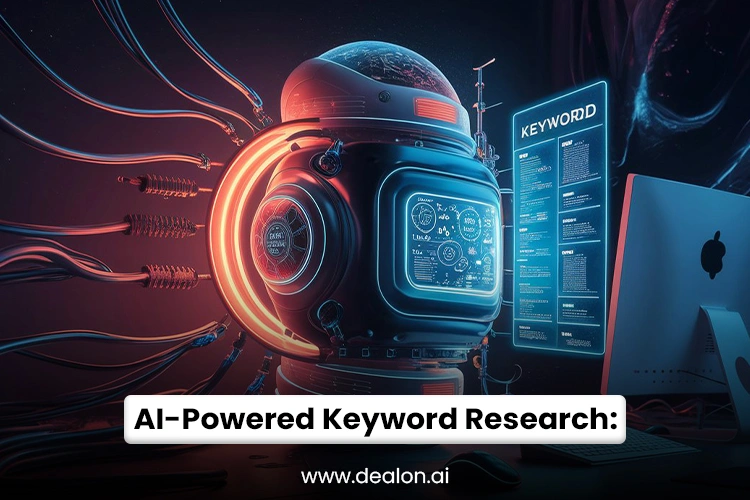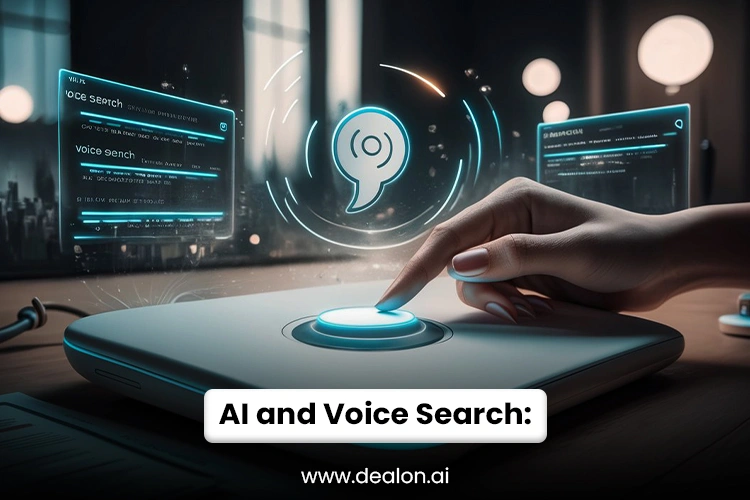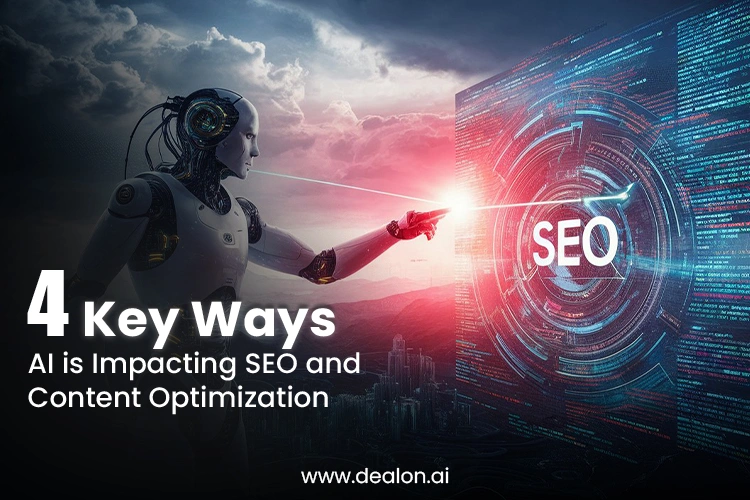AI is reshaping digital marketing, transforming how businesses approach SEO and content optimization. As search engines grow more sophisticated and user expectations become increasingly complex, AI technologies have provided marketers with powerful tools to refine their strategies, enhance efficiency, and achieve unprecedented precision. What was once a manually driven process—where SEO experts relied on intuition and hours of analysis—is now being augmented by AI-driven insights that optimize content, target niche audiences, and elevate the user experience.
AI’s influence extends beyond traditional SEO practices, introducing innovations that empower marketers to anticipate trends, personalize content at scale, and predict future consumer behavior. By utilizing machine learning, NLP, and predictive analytics, AI can uncover hidden opportunities for optimization, streamline workflows, and adapt to shifting search algorithms in real time. These advancements improve search engine rankings, foster more profound engagement, and enhance audience relevance.
As businesses scramble to maintain visibility in an increasingly competitive digital marketplace, AI presents a transformative opportunity to stay ahead of the curve. It offers the ability to extract actionable insights from vast data sets, ensuring that every piece of content is optimized to meet the specific markets of both users and search engines alike. This blog explores four crucial ways AI redefines SEO and content optimization, equipping digital marketers with essential tools for success in an evolving landscape.
Also Read: 5 Marketing Tasks You Can Automate with AI-Powered Tools
AI-Powered Keyword Research: Precision and Efficiency

Keyword research is the bedrock upon which competitive SEO strategies are built. In the past, SEO specialists had to invest considerable time in manually gathering data, analyzing search volumes, and tracking competitor keywords to identify the best opportunities for content optimization. However, the advent of AI has dramatically transformed this process, infusing it with precision and efficiency. AI-powered tools have now taken over keyword research’s tedious, time-consuming aspects, enabling marketers to make more informed decisions with greater ease and accuracy.
ML is at the heart of AI-driven keyword research, continuously allowing algorithms to refine their predictions based on vast data sets. Unlike traditional methods, where keyword selection was often based on intuition or limited datasets, AI tools analyze billions of search queries and digital behaviors, providing deeper insights into user intent. By doing so, AI can predict which keywords will likely drive traffic and what users seek when making search queries.
Revolutionizing Long-Tail Keyword Discovery
AI’s ability to unearth valuable long-tail keywords is a game changer. Long-tail keywords, which consist of longer, more specific phrases, typically have lower search volumes but boast significantly higher conversion rates. Identifying these keywords used to be a tedious process, requiring deep knowledge of search trends and constant manual monitoring. With AI, the process becomes effortless. AI algorithms can analyze search patterns and linguistic trends to identify long-tail keywords that are underutilized yet highly relevant to the created content.
Furthermore, AI helps uncover “niche” keywords often overlooked by traditional keyword research tools. Although less competitive, these niche keywords can usually yield higher ROI as they attract more targeted traffic. By focusing on these high-potential long-tail keywords, marketers can craft content that stands out in a crowded marketplace, catering to the specific needs of their audience without the fierce competition typically associated with short-tail keywords.
Predictive Analytics for Emerging Trends
One of the most innovative aspects of AI-powered keyword research is its ability to predict future trends. Search behavior is dynamic, influenced by changing seasons, societal shifts, and emerging technologies. Coping with these transformations demands constant monitoring and rapid adaptation—something AI excels at. By analyzing historical data, AI can identify patterns and predict shifts in search behavior. This permits businesses to stay ahead of the curve by targeting emerging topics before they gain mainstream traction.
Competitive Analysis: Gaining a Strategic Edge

AI-powered tools go beyond simply identifying keywords; they also excel in assessing competitive landscapes. AI can analyze competitor websites, revealing the keywords they are targeting, their ranking positions, and their strategies to achieve those positions. This level of analysis enables businesses to develop more effective content strategies by identifying gaps in their competitors’ approaches and capitalizing on untapped opportunities.
For example, AI can identify keywords that competitors are ranking for but are underperforming on, permitting businesses to optimize their content and index higher for those keywords. Similarly, AI can highlight opportunities in keyword spaces that competitors are neglecting, offering a strategic advantage for content creation.
The Future of Keyword Research
As AI transforms, so will its impact on SEO and content optimization. The technology is becoming more competent, enabling more nuanced analyses of user behavior and search trends. Future developments may bring even more personalized keyword recommendations, considering individual user characteristics and behaviors in real time. For example, integrating AI with voice search could allow for even more precise keyword targeting by focusing on conversational phrases and long-tail queries that are increasingly common in voice-enabled search.
Content Creation and Optimization: Enhancing Quality and Relevance
In digital marketing, crafting content that captivates audiences and performs well on search engines requires a careful balance. Today, search engines are far more sophisticated, focusing on user intent, content quality, and relevance. As a result, AI has emerged as a pivotal tool in content creation and optimization, empowering marketers to produce high-quality, optimized content that meets user expectations and search engine algorithms.
Natural Language Processing (NLP) and Content Evaluation
One of the most potent AI technologies transforming content creation is Natural Language Processing (NLP). This advanced form of AI allows machines to comprehend, analyze, and generate human language in a way that mimics human cognitive processes. NLP is particularly valuable in ensuring that content aligns with the search intent behind a query. For instance, AI tools can analyze a piece of content and determine if it honestly answers the questions or needs of users based on the search terms used.
This ability to match content with search intent is vital because modern search engines, like Google, have moved beyond simply matching keywords to considering context, relevance, and semantic meaning. AI tools incorporating NLP can suggest improvements to existing content, ensuring it speaks directly to the user’s intent and optimizes engagement. For example, AI might recommend rephrasing content to make it more conversational or suggest adding specific data points to back up claims, boosting credibility and relevance.
Improving Keyword Density and Topic Relevance
While its stuffing is a thing of the past, AI tools can still optimize content for keyword placement and density. By evaluating content for keyword relevance and natural integration, AI ensures that keywords are placed strategically throughout the text without compromising readability. Beyond its optimization, AI can also identify opportunities for related keywords or long-tail phrases that might have been overlooked. These insights help content creators expand their topic coverage, providing more in-depth, well-rounded content that resonates with search engines and audiences.
Moreover, AI can recommend additional topics based on emerging trends, competitive analysis, and gaps in existing content. By scanning the digital landscape for trending topics and user queries, AI tools can help marketers stay ahead by suggesting fresh ideas and angles to explore. This ability to generate relevant topic ideas is an invaluable asset for content marketers, enabling them to create compelling articles that cater to audience interests while optimizing search engine performance.
Performance Analysis and Continuous Optimization
AI doesn’t stop at content creation; it also plays a crucial role in content optimization post-publication. Through advanced analytics, AI tools can track key performance indicators (KPIs) such as bounce rate, time on page, and user engagement. AI can offer insights into what is working and what needs improvement by assessing how content performs in the real world. For example, suppose a piece of content has a high bounce rate. In that case, AI might suggest changes to the structure, such as improving the introduction or making the call-to-action more compelling, to encourage users to stay longer and engage more deeply.
Furthermore, AI can analyze competitor content to identify areas where your content may be lacking or where you can outshine your competition. For example, AI tools can assess the average time on competing articles’ pages and identify features—such as visuals, internal links, or interactive elements—that might increase engagement. By understanding these factors, content can be continuously optimized to remain relevant and appealing to the audience, thus improving SEO performance and user satisfaction.
AI and Voice Search: Adapting Content for New Search Behaviors

The advent of voice search has fundamentally altered how users interact with search engines, initiating a profound shift in digital behavior. With voice assistants like Siri, Alexa, and Google Assistant becoming integral to daily life, voice search queries have introduced new complexities into the SEO landscape. Unlike traditional text-based searches, voice searches are inherently more conversational, often featuring long-tail keywords and question-based phrases. As a result, AI technologies have become indispensable in helping marketers optimize their content for these emerging search behaviors.
Voice searches typically reflect a natural, spoken language, distinctly different from the more concise, often fragmented queries typed into a search engine. Users tend to ask complete questions, such as “What is the best Italian restaurant nearby?” rather than simply typing “best Italian restaurant.” This shift requires a new approach to content creation and optimization. AI-powered tools are now equipped to analyze the nuances of voice queries, allowing marketers to adjust their content to better align with these evolving user behaviors.
Optimizing for Conversational Keywords
AI is crucial in understanding the natural language used in voice searches. AI can break down and interpret voice queries through advanced algorithms and NLP, identifying critical conversational elements. By analyzing these queries, AI tools can suggest relevant long-tail keywords and question-based phrases that are more likely to match voice search behavior. For instance, optimizing for keywords such as “how to,” “where can I find,” or “what is the best way to” helps align content with voice searches, ensuring that it resonates with users’ natural conversational style.
Positioning Content for Featured Snippets
AI’s ability to analyze and optimize content for voice search is also pivotal in securing placements in featured snippets. Featured snippets are designed to provide direct, succinct answers to user queries, precisely what voice assistants seek when delivering responses. By analyzing the structure of voice queries, AI can recommend content adjustments that increase the likelihood of appearing in these coveted positions.
For example, AI can identify which parts of existing content answer common questions in your industry and suggest structural changes to highlight these answers more effectively. By structuring content in a question-and-answer format, using bulleted lists, and providing concise explanations, marketers can increase their chances of being selected for featured snippets.
Content Creation for Voice Search Optimization
The ability to anticipate voice queries is also essential in content creation. AI tools can help marketers avoid emerging questions by analyzing trends in voice search behavior and identifying the most common queries related to their industry. With this insight, businesses can create content that answers these questions in a highly relevant, natural way. For instance, AI-driven tools can provide suggestions on content topics that align with voice searches, offering opportunities to create blog posts, FAQs, or even entire landing pages dedicated to answering popular voice-based questions.
AI-Driven Personalization: Tailoring Content for the User Experience
Personalization has become essential for SEO and content optimization in the ever-competitive digital landscape. As search engines resume to refine their algorithms, they place increasing emphasis on user experience, prioritizing content that is tailored to the individual. AI has emerged as a powerful means in this domain, allowing businesses to craft highly personalized content experiences that resonate deeply with users. By analyzing extensive amounts of data, AI can uncover patterns in user behavior, preferences, and engagement, permitting marketers to create content that is not only relevant but also highly engaging.
Enhancing User Experience Through AI
One of the most remarkable ways AI improves personalization is through its ability to analyze individual user interactions with websites and other digital platforms. AI can build detailed user profiles that inform content strategies by examining browsing history, clicks, time spent on specific pages, and social media engagement. These profiles allow businesses to segment audiences into distinct groups based on common behaviors and interests, enabling them to deliver content uniquely tailored to each user.
For instance, an e-commerce website might utilize AI to suggest products based on a user’s old purchases or browsing history, offering highly personalized suggestions. Similarly, a blog can leverage AI to recommend articles or posts aligned with a user’s interests, ensuring content remains relevant and engaging. By creating personalized experiences, businesses can keep users engaged for extended periods, directly impacting SEO performance. Longer time on the page and reduced bounce rates signal that the content is valuable and relevant, ultimately improving the website’s ranking in search engine results pages (SERPs).
Boosting SEO Performance with Personalized Content
Personalization improves the user experience and is a pivotal driver for SEO success. Search engines like Google increasingly prioritize user satisfaction and relevance when determining rankings. By leveraging AI to deliver personalized content, websites can increase the chance of appearing higher in SERPs, as they clearly understand user intent and preferences.
AI-driven personalization can also help reduce bounce rates and improve engagement metrics and critical ranking factors. For example, AI can suggest personalized landing pages based on the user’s previous interactions, making visitors more likely to stay on the site longer and engage with the content. AI dynamically adjusts content in real-time, aligning it with evolving user behavior. For instance, if a user revisits a website after a prolonged absence, AI can present new content that aligns with their past interests or even introduce fresh topics, keeping the experience relevant and engaging.
Conclusion
AI is undeniably transforming the landscape of SEO and content optimization. From revolutionizing keyword research with unparalleled precision to enhancing content creation through data-driven insights, AI enables marketers to craft highly effective strategies. The advent of voice search and AI-driven voice query optimization has further reshaped SEO, requiring content to adapt to conversational, question-based user queries. Furthermore, AI’s power in personalizing content ensures businesses can engage users deeper, offering tailored experiences that boost user satisfaction and SEO performance.

